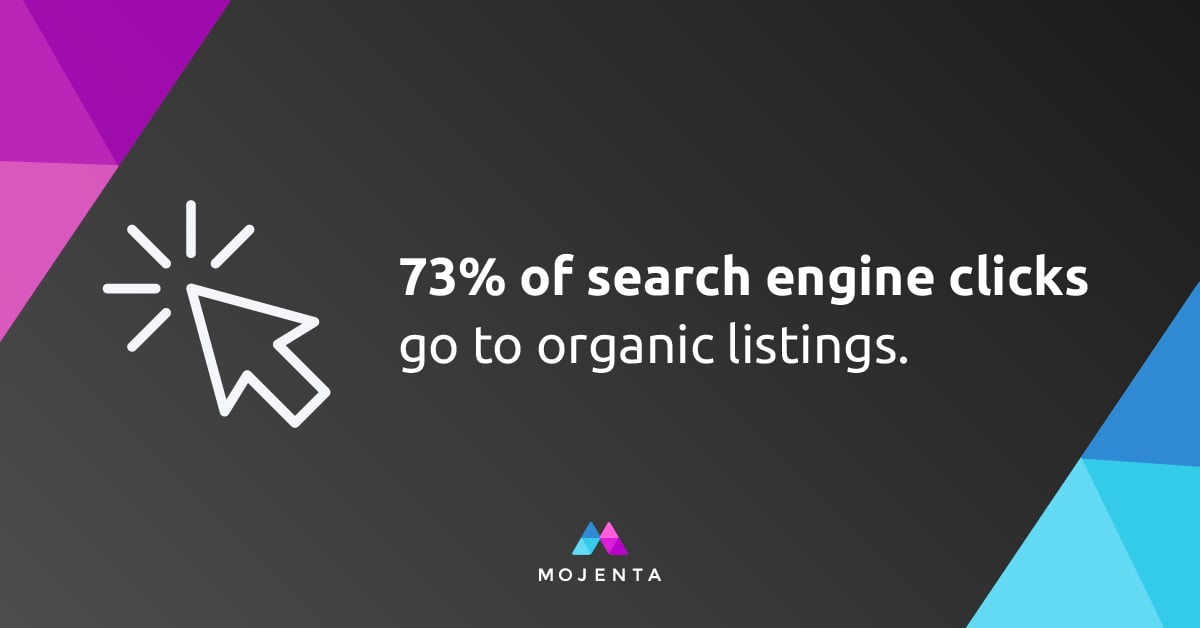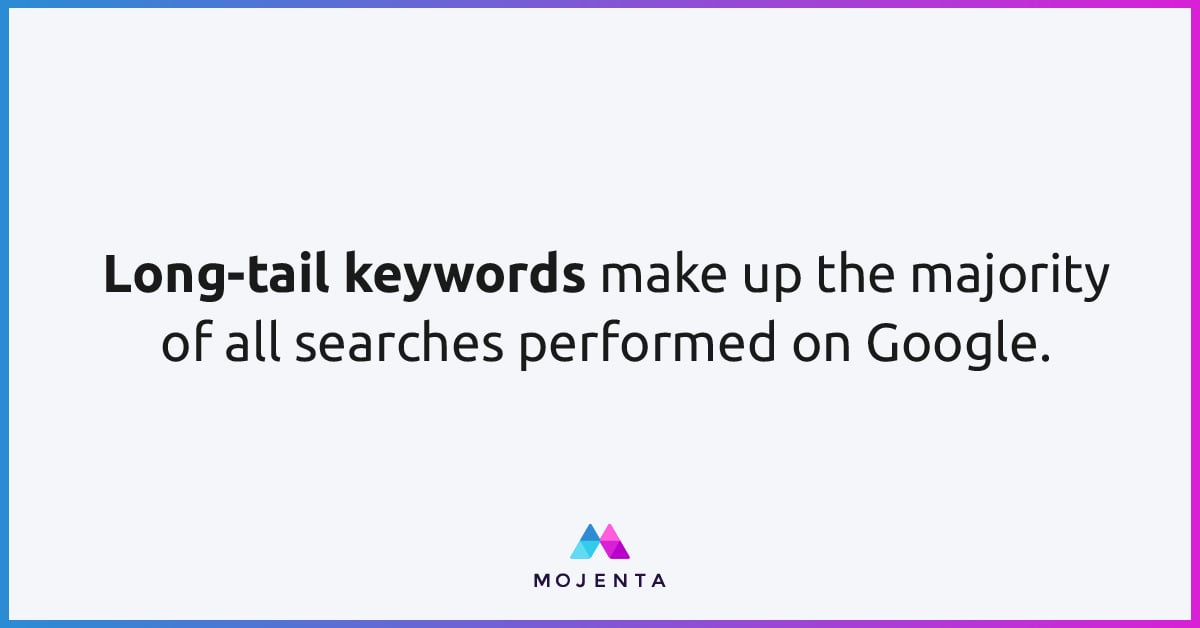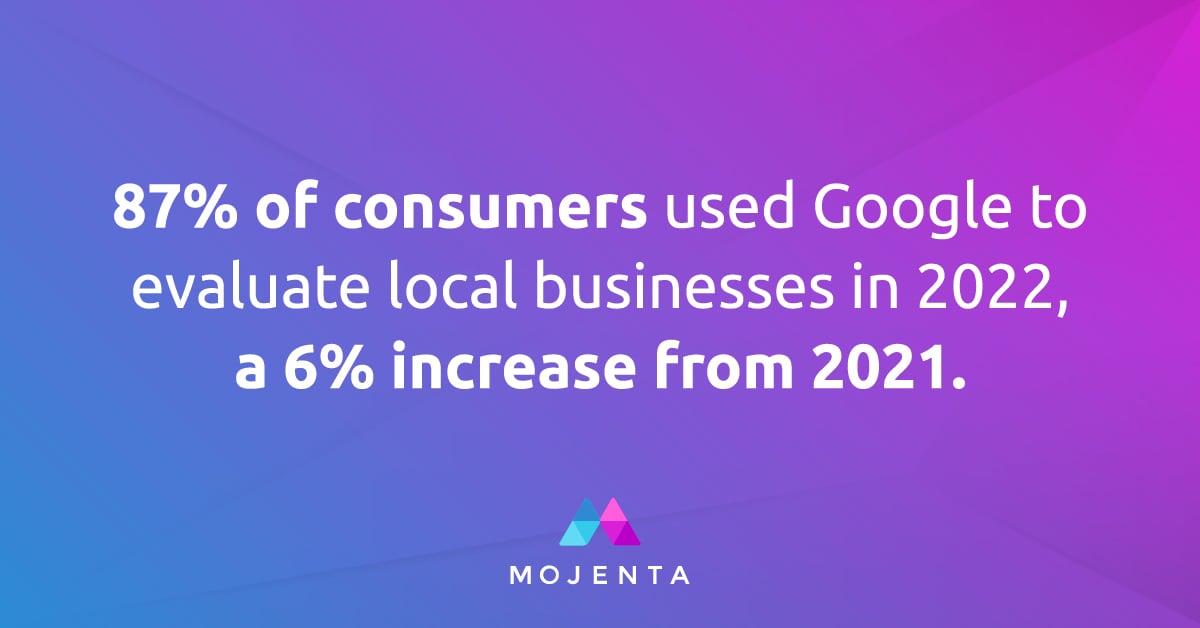If you're struggling to get your MSP business found online, it's time to get serious about SEO. Less than 1% of buyers click past the first page of Google search results,1 so if your website isn't ranking, you're missing out on potential customers.
But as with every MSP marketing strategy, SEO is constantly evolving. Figuring out which keywords to target or where to fit them into your website can be challenging without the right tools – and with so much information out there, how can you be sure where to start? Read on for expert tips to help you build an effective SEO strategy tailored for managed service providers.
Understanding SEO
SEO (search engine optimization) refers to optimizing your website and digital content to increase visibility on search engines like Google.
Improving SEO can help you increase organic traffic, or the number of visitors who land on your website as a direct result of using search engines instead of clicking on paid ads. This is usually achieved by executing search engine optimization best practices, including:
- Keyword research, which involves identifying the terms your target audience searches for related to your business offerings.
- Building high-quality backlinks from other authoritative sites to signal your website's quality and relevance on a topic.
- Creating content that is useful and targets relevant keyword terms so that it can both provide value for readers and rank on search engines.
- Analyzing site performance using analytics tools, which will enable you to refine your SEO strategy over time.
Why Does SEO Matter for MSPs?
MSP SEO refers to SEO strategies and best practices tailored specifically for managed service providers. The goal of MSP SEO is to improve the search visibility and rankings of an MSP's website for keywords and phrases potential customers use to search for managed IT and other services the MSP offers.
MSPs generally have a higher profit margin than other businesses, so every lead acquired organically is a huge surplus. With organic web search listings getting 73% of clicks,2 developing an effective SEO strategy is an affordable way to get the right eyes on your website and convert them into customers.

How Has MSP SEO Evolved Over the Years?
In the past, SEO involved methods like using shady backlink farms or keyword stuffing to hack your way to the top of the search rankings. But Google's algorithms have grown far more advanced over the past decade, so those “get rich quick” SEO tricks don’t work anymore.
This shift has been positive for savvy MSPs. Search engines assess sites for legitimate, helpful content now, leveling the playing field and allowing you to take an authentic approach to building your MSP SEO strategy. By optimizing pages and content for relevance, establishing expertise, and building natural links, Google will recognize your managed service provider website as a valued resource for searchers.
MSP SEO: The Basics
Achieving success with MSP SEO requires a strategic approach to applying core optimization techniques. Here are the fundamentals to help you get started:
SEO vs. PPC for MSPs
SEO and pay-per-click (PPC) ads both aim to increase website visibility and traffic. But while each strategy leverages search engines to drive website traffic, they serve different functions.
SEO focuses on improving rankings in organic search results, allowing MSPs to gain visibility without paying per click. PPC refers to the sponsored ads at the top of search pages. These ads can generate immediate traffic, but you pay for each click – and costs can mount quickly without careful monitoring.
Ultimately, SEO and PPC can work well together for managed service providers. SEO provides sustainable organic growth with lower long-term costs per lead, making it an efficient channel to complement PPC campaigns.
On-Site SEO vs. Off-Site SEO for MSPs
SEO for MSPs is made up of two main components: on-site optimization and off-site optimization.
On-site SEO refers to the factors directly controlled on your website, including:
- Technical elements like page speed, mobile-friendliness, schema markup, etc.
- High-quality content creation and optimization around target keywords
- Page titles, meta descriptions, headings, etc.
- Internal linking between related pages
- Media optimization, such as image names and alt text
Off-site SEO involves external strategies outside of your website, including:
- Link building from other authoritative websites
- Social media profiles and engagement
- Directory listings and citations
- Mentions/references around the web
- Reviews and testimonials
- Thought leadership content promotion
On-site and off-site SEO can be best understood as two essential pillars supporting your business's digital presence. On-site increases your website's visibility, while off-site boosts its credibility. By optimizing both, your website can attract a larger audience while also establishing trust and authority within your niche.
The Importance of Keywords for MSP SEO
Keywords are how customers find your web pages, so you should consider them carefully when building your MSP SEO strategy. Depending on which keywords you target, you'll achieve different outcomes in terms of traffic and leads. Here are a few tips to keep in mind:
Keyword Best Practices
The three essentials when it comes to keywords are:
- Perform regular keyword research. Keyword research shouldn't be a one-time event. Search trends change, so it's important to identify new relevant keywords before creating any content. Make research an ongoing part of your content creation process.
- Build a keyword list. Maintain a master list of keywords to reference and add to over time, which can serve as a starting point whenever you publish new content. Reuse proven keywords and add new ones from updated research.
- Target low-competition keywords. Avoid highly competitive keywords, especially if your site is new. Try targeting long-tail keywords, which are specific phrases searchers are more likely to use when they're close to making a purchase or using voice search. Optimizing for the right low-competition terms can generate quicker traffic gains.

Selecting the Right Keywords
When crafting your SEO strategy, one of the first steps is determining which keywords you want your site to rank for. We recommend looking at these four factors when choosing your target keywords:
- Monthly search volume. How often is a keyword searched for each month? Check out Google's Keyword Planner or other SEO tools to find this info.
- Competition. How many businesses are going after the same keyword? More competition makes it tougher to rank.
- Relevance. Does the keyword closely relate to your managed services? Target keywords that describe your core offerings.
- Profitability. Will ranking for this term drive valuable new business? Prioritize keywords with high commercial intent.
One common mistake we see is trying to optimize for something like "business continuity," which is relevant – but not necessarily what your customers are actually searching for. Instead, use a term like "IT support services" that directly describes your offerings.
Your ideal target keywords should have high search volume, low competition, close relevance to your services, and strong profit potential for your managed service provider business. With the right targets, your SEO efforts will attract quality leads and grow your business.
Essential Keyword Research Tools
The right keyword research tool can help you identify topics people frequently search for on search engines to help you design a better content strategy and generate content tailored to your customers' needs. Some popular tools include:
- Google Keyword Planner. Google's free keyword research tool provides search volume data and suggestions based on seed keywords.
- SEMrush. This paid tool provides robust keyword data, including volume, CPC, competition metrics, and keyword gap analysis.
- Ahrefs. Similar to SEMrush, Ahrefs offers extensive keyword research capabilities and helps uncover long-tail variations.
- Moz Keyword Explorer. Moz's paid research tool provides high-quality data such as volume, competition, SERP analysis, and more.
- AnswerThePublic. This free tool visualizes search questions and autocompletes searches in an image called a search cloud.
- Soovle. This tool provides keyword suggestions from multiple search engine sources, making it a quick and free resource for getting diverse ideas.
- Bing Keyword Planner. Like Google's keyword research option, Bing's alternative provides suggestions and search data for Bing's search engine.
Many managed service providers use both free and paid tools to get a comprehensive view of keyword options. But even without using any paid or free tools for keyword research, simply searching in Google can help. By typing a keyword into the search engine, you get a list of related keywords that can be used to create new content or refresh your existing blogs.
Keyword Mistakes to Avoid
When selecting keywords to target, these common pitfalls can undermine your SEO efforts:
- Relying on high-volume keywords alone. Don't just look at search volume – factors like competition and commercial intent also matter. A keyword with half a million searches may not work for your business if dozens of national managed service providers also target it.
- Reusing keywords. Don't reuse keywords on multiple web pages or blogs since they'll end up competing with each other for rankings.
- Ignoring long-tail keywords. SEMrush recently revealed that long-tail keywords make up the majority of all searches performed on Google.3 Phrases with three to five words, such as "Chicago IT support for small business," can be easier to rank than one-word terms.
- Choosing irrelevant keywords. Target keywords that closely match your services. Don't waste time on unrelated terms, even if they have large search volumes.
- Failing to refine your strategy over time. Make sure to monitor your rankings and search trends to find new opportunities, and set aside time each quarter to update your target keywords.
More MSP SEO Best Practices
Keywords and page optimization should be top priorities when leveling up your SEO game, but there's much more you can do to rank higher on search engines. Other SEO best practices your MSP business should follow include:
1. Write Quality Content
When creating content like blogs, remember that search engines have a single goal: delivering the most relevant search results to the consumer. Regularly update your website with high-quality writing on the topics your target audience is looking for to position your business as an industry expert and keep your site fresh in the eyes of search engines.
2. Prioritize Local SEO
For MSPs, reaching local clientele is a massive opportunity. Last year, 87% of consumers used Google to evaluate local businesses, a 6% increase from 2021.4 You can improve your business's local SEO by claiming and optimizing your Google Business Profile (formerly Google My Business), encouraging local customers to leave reviews, and ensuring your contact details are consistent across all platforms.

3. Gain Authority
Search engines love sharing authoritative websites, which have proven themselves to be trustworthy, useful sources for consumers. You can build authority and establish your business as an expert in the MSP space by contributing to online communities, sharing guest posts on websites with high domain authority, partnering with vendors, and more. Maintaining a high engagement rate for your blogs also helps build trust with search engines since high engagement means people who visit your website tend to spend a while browsing your helpful content.
4. Optimize Your MSP Website
Optimizing your website to follow technical best practices, like fast page speeds, a mobile-friendly design, proper XML sitemaps, and more, is crucial for both the user experience and SEO. Consider conducting regular audits to check for areas that need optimization, such as removing or updating broken links and updating keywords in your content and title tags.
SEO for MSPs: Get Ready to Rock the Search Results
Building a solid SEO strategy takes time and dedication – but the payoff is worth the effort. If you're ready to get your website found by the right people, Mojenta's SEO experts are here to help with holistic marketing strategies tailored for MSPs.
We'll leverage our 10+ years of MSP lead generation experience to transform your website into a high-performance marketing and sales machine with data-driven strategies for SEO, inbound marketing, digital advertising, and more. Book a consult today to chat to learn more about how we can help your business grow.
Sources:



